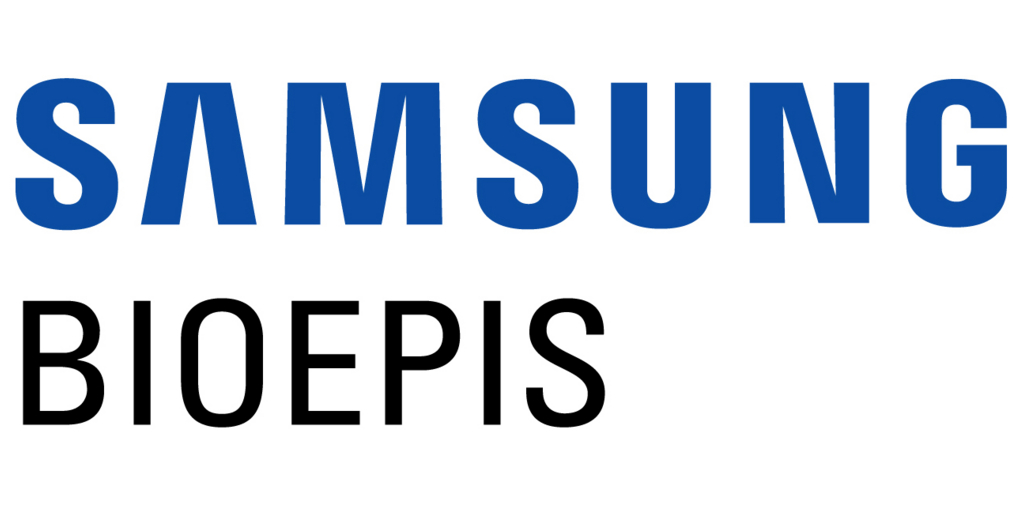- Harrow will assume full commercial responsibility for BYOOVIZ® (ranibizumab-nuna) and OPUVIZ™ (aflibercept-yszy) upon full transition of Biogen’s commercialization rights back to Samsung Bioepis by the end of 2025
- BYOOVIZ, approved by the FDA in September 2021 as the first ophthalmology biosimilar in the US, has been commercially available since June 2022
- OPUVIZ was approved by the FDA in May 2024
INCHEON, Korea--(BUSINESS WIRE)--#biosimilars--Samsung Bioepis Co., Ltd. (“Samsung Bioepis”) announced today that the company has entered into a license, development and commercialization agreement (DCA) with Harrow (Nasdaq: HROW), for Samsung Bioepis’ ophthalmology portfolio — BYOOVIZ® (ranibizumab-nuna), a biosimilar referencing LUCENTISi (ranibizumab) and OPUVIZ™ (aflibercept-yszy), a biosimilar referencing EYLEAii (aflibercept) — in the United States. The commercial license will become effective upon completion of the transition of commercial rights from Biogen back to Samsung Bioepis, which is expected to be completed by the end of 2025.


In October 2024, Biogen notified Samsung Bioepis of its decision to terminate the 2019 Development and Commercialization Agreement within the US and Canada. Samsung Bioepis has been closely working with Biogen on the transfer of commercialization rights for BYOOVIZ and OPUVIZ back to Samsung Bioepis in these regions. Harrow will assume full responsibility for commercialization of BYOOVIZ and OPUVIZ in the US upon completion of the transition of commercial rights from Biogen back to Samsung Bioepis.
BYOOVIZ was approved by the U.S. Food and Drug Administration (FDA) in September 2021 as the first ophthalmology biosimilar in the US for the treatment of patients with Neovascular (Wet) Age-Related Macular Degeneration (AMD), Macular Edema following Retinal Vein Occlusion (RVO), and Myopic Choroidal Neovascularization (mCNV). BYOOVIZ has been commercially available in the US since June 2022. OPUVIZ was approved in May 2024 for the treatment of patients with Wet AMD, Macular Edema following RVO, Diabetic Macular Edema (DME), and Diabetic Retinopathy (DR).
“We are pleased to partner with Harrow, a leading eyecare pharmaceutical company with strong capabilities in commercialization of ophthalmic pharmaceutical products in the North American market. We will work closely with both Biogen and Harrow to ensure a seamless transition and the continued delivery of services to our customers and patients in the US market,” said Josh Sang Hyun Lee, Vice President and Business Development Team Leader at Samsung Bioepis. “Samsung Bioepis remains committed to expanding access and widening treatment options for healthcare systems, healthcare professionals, and patients, by providing affordable and high-quality biologic medicines around the world.”
About BYOOVIZ (ranibizumab-nuna)
BYOOVIZ (ranibizumab-nuna) injection, for intravitreal use.
BYOOVIZ (ranibizumab-nuna) is biosimilar to LUCENTIS (ranibizumab injection).
BYOOVIZ, a vascular endothelial growth factor (VEGF) inhibitor, is indicated for the treatment of patients with:
Neovascular (Wet) Age-Related Macular Degeneration (AMD)
Macular Edema Following Retinal Vein Occlusion (RVO)
Myopic Choroidal Neovascularization (mCNV)
Select Important Safety Information
WARNING AND PRECAUTIONS
Endophthalmitis and retinal detachments may occur following intravitreal injections. Patients should be monitored following the injection.
Increases in intraocular pressure (IOP) have been noted both pre- and post-intravitreal injection.
There is a potential risk of arterial thromboembolic events following intravitreal use of VEGF inhibitors.
ADVERSE REACTIONS
The most common adverse reactions (reported more frequently in ranibizumab treated subjects than control subjects) are conjunctival hemorrhage, eye pain, vitreous floaters, and increased IOP.
Please see Prescribing Information for BYOOVIZ (ranibizumab-nuna) HERE.
About OPUVIZ (aflibercept-yszy)
OPUVIZ (aflibercept-yszy) injection, for intravitreal use.
OPUVIZ (aflibercept-yszy) is biosimilar to EYLEA (aflibercept).
OPUVIZ is a vascular endothelial growth factor (VEGF) inhibitor, indicated for the treatment of patients with:
Neovascular (Wet) Age-Related Macular Degeneration (AMD)
Macular Edema Following Retinal Vein Occlusion (RVO)
Diabetic Macular Edema (DME)
Diabetic Retinopathy (DR)
Select Important Safety Information
WARNING AND PRECAUTIONS
Endophthalmitis, retinal detachments, and retinal vasculitis with or without occlusion may occur following intravitreal injections. Patients and/or caregivers should be instructed to report any signs and/or symptoms suggestive of endophthalmitis, retinal detachment, or retinal vasculitis without delay and should be managed appropriately.
Increases in intraocular pressure have been seen within 60 minutes of an intravitreal injection.
There is a potential risk of arterial thromboembolic events following intravitreal use of VEGF inhibitors.
ADVERSE REACTIONS
The most common adverse reactions (≥5%) reported in patients receiving aflibercept were conjunctival hemorrhage, eye pain, cataract, vitreous detachment, vitreous floaters, and intraocular pressure increased.
Please see Prescribing Information for OPUVIZ (aflibercept-yszy) HERE.
About Samsung Bioepis Co., Ltd.
Established in 2012, Samsung Bioepis is a biopharmaceutical company committed to realizing healthcare that is accessible to everyone. Through innovations in product development and a firm commitment to quality, Samsung Bioepis aims to become the world's leading biopharmaceutical company. Samsung Bioepis continues to advance a broad pipeline of biosimilar candidates that cover a spectrum of therapeutic areas, including immunology, oncology, ophthalmology, hematology, nephrology, and endocrinology. For more information, please visit: www.samsungbioepis.com and follow us on social media – LinkedIn, X.
i Lucentis is a trademark of Genentech, Inc.
ii Eylea is a trademark of Regeneron Pharmaceuticals, Inc.
Contacts
MEDIA CONTACT
Anna Nayun Kim, nayun86.kim@samsung.com
Yoon Kim, yoon1.kim@samsung.com




